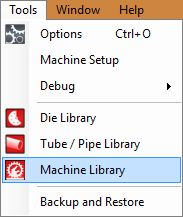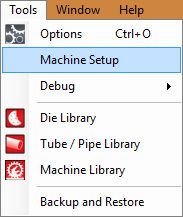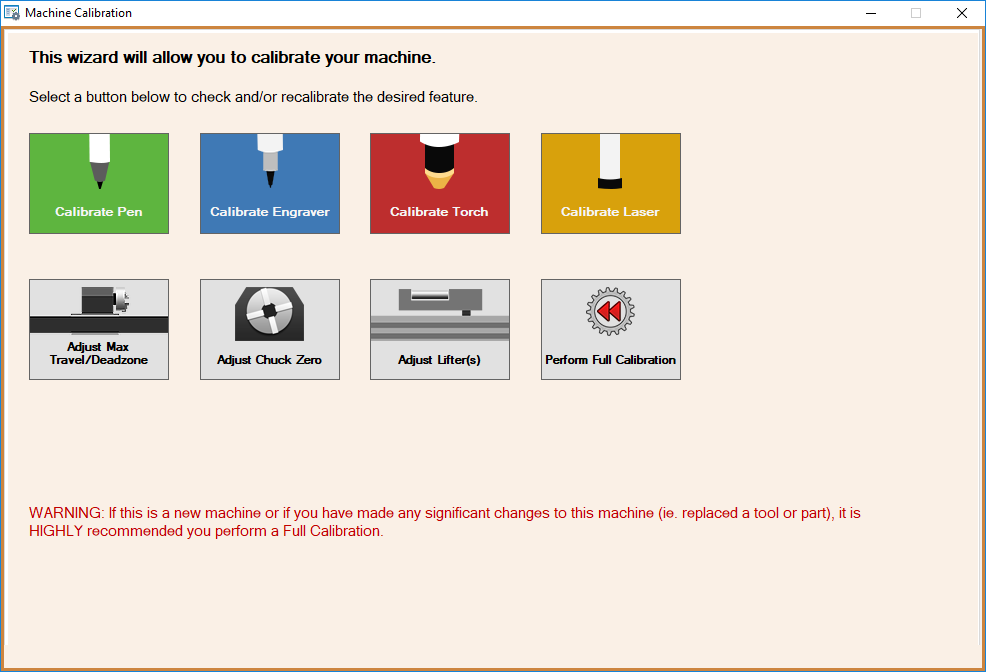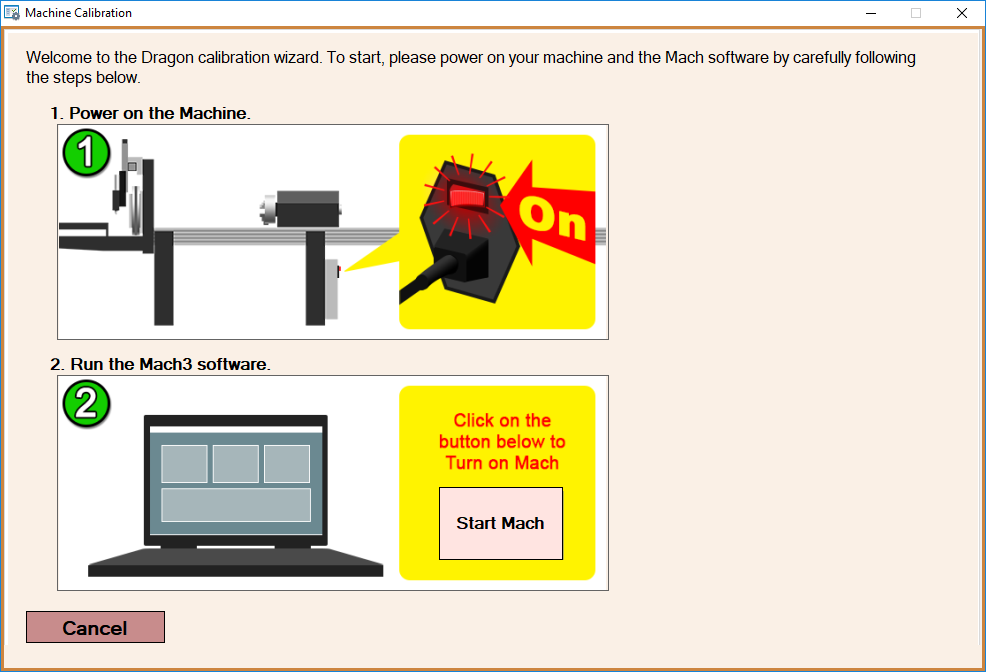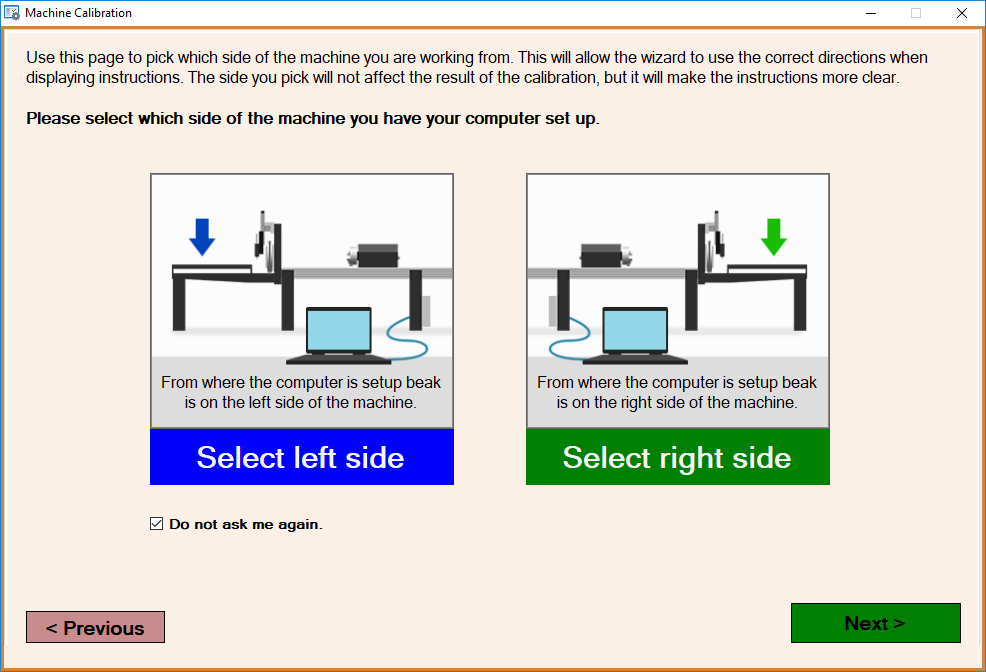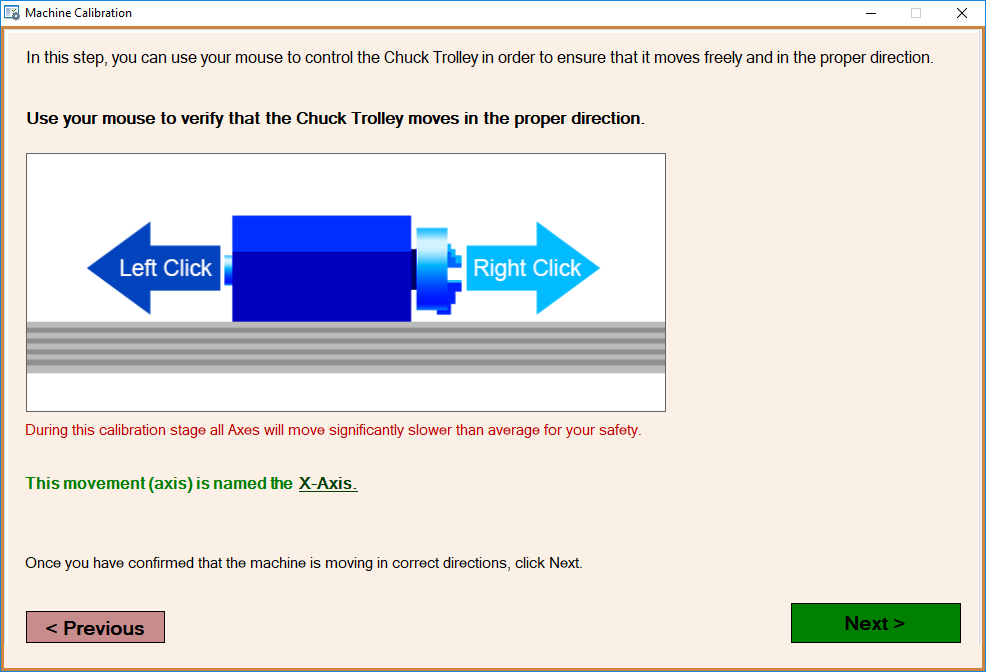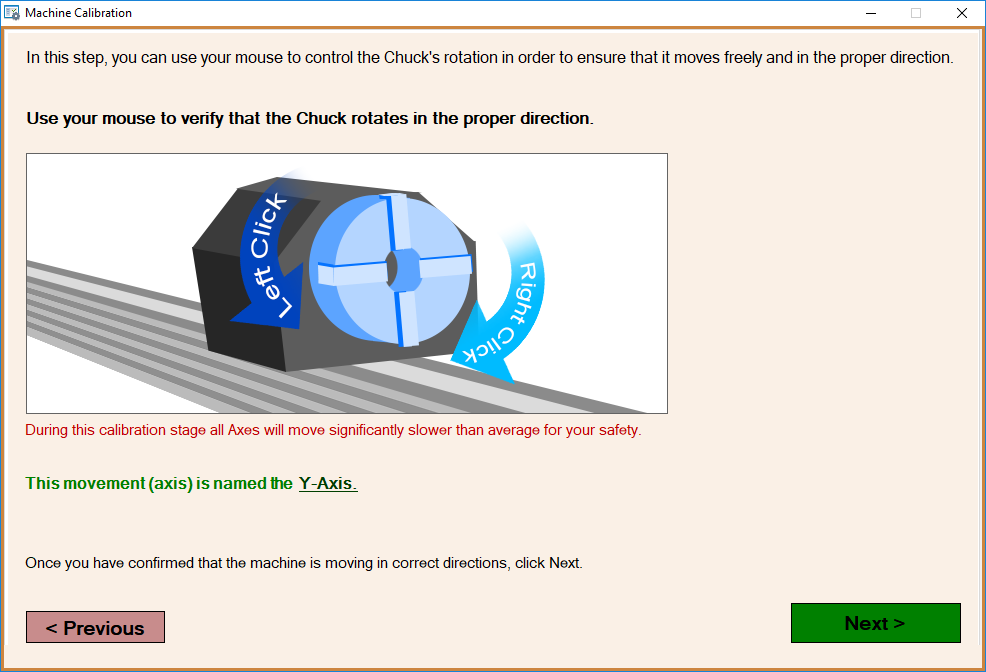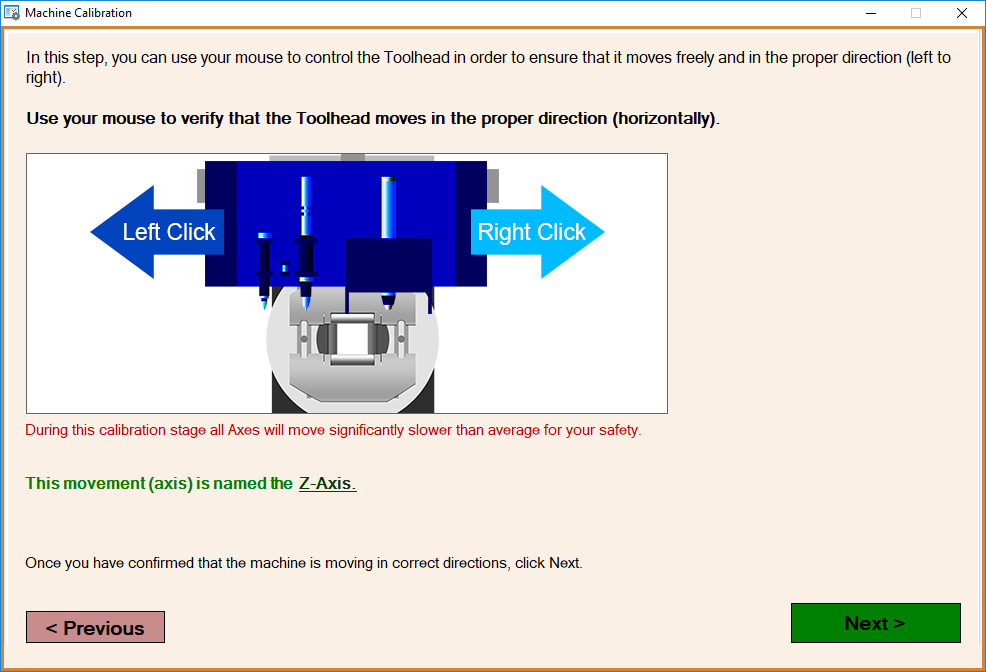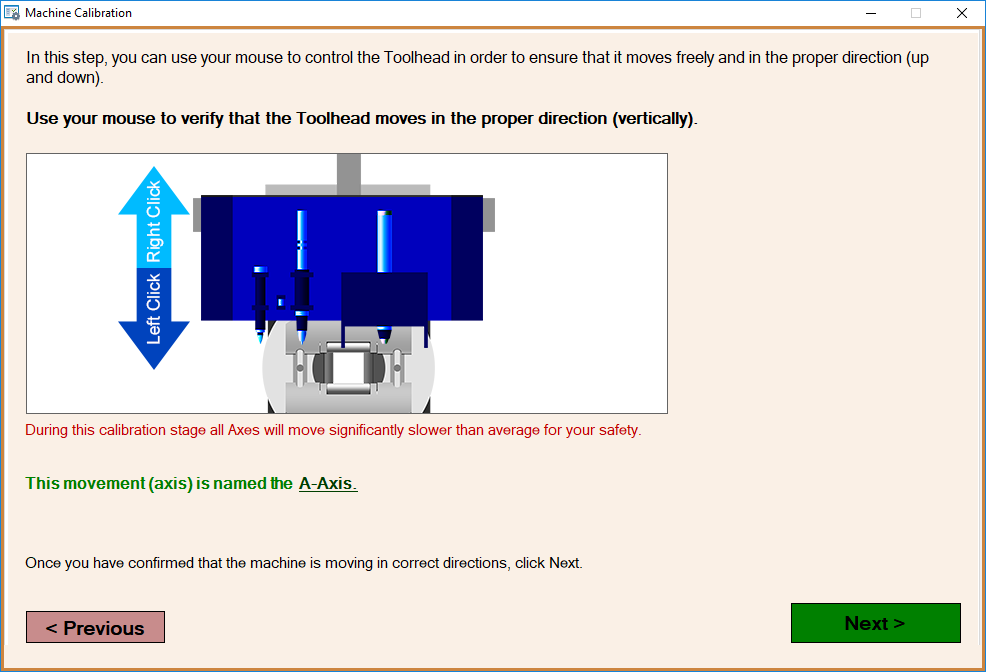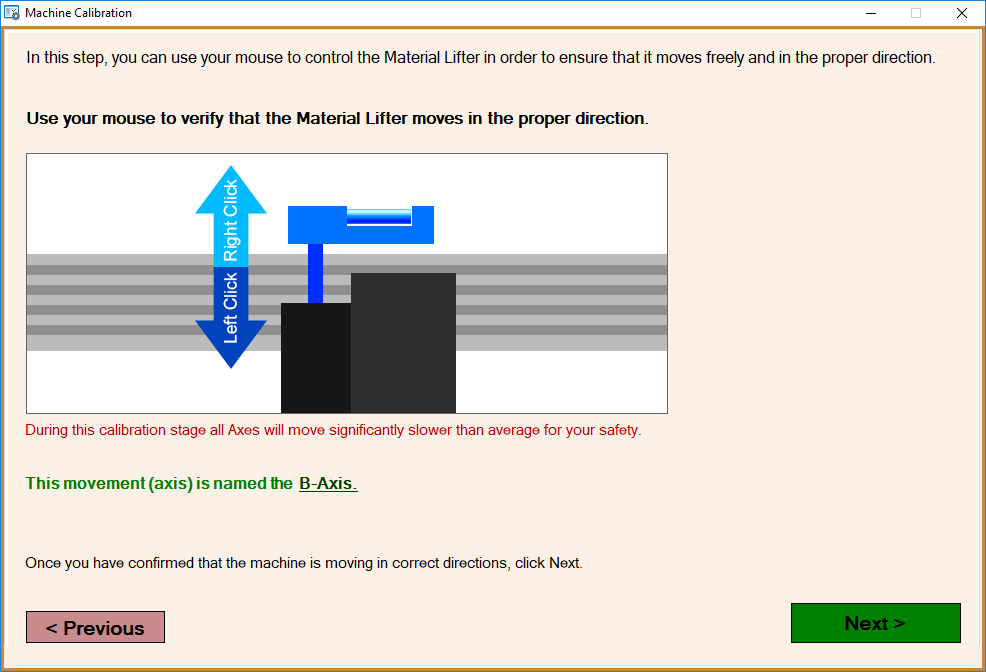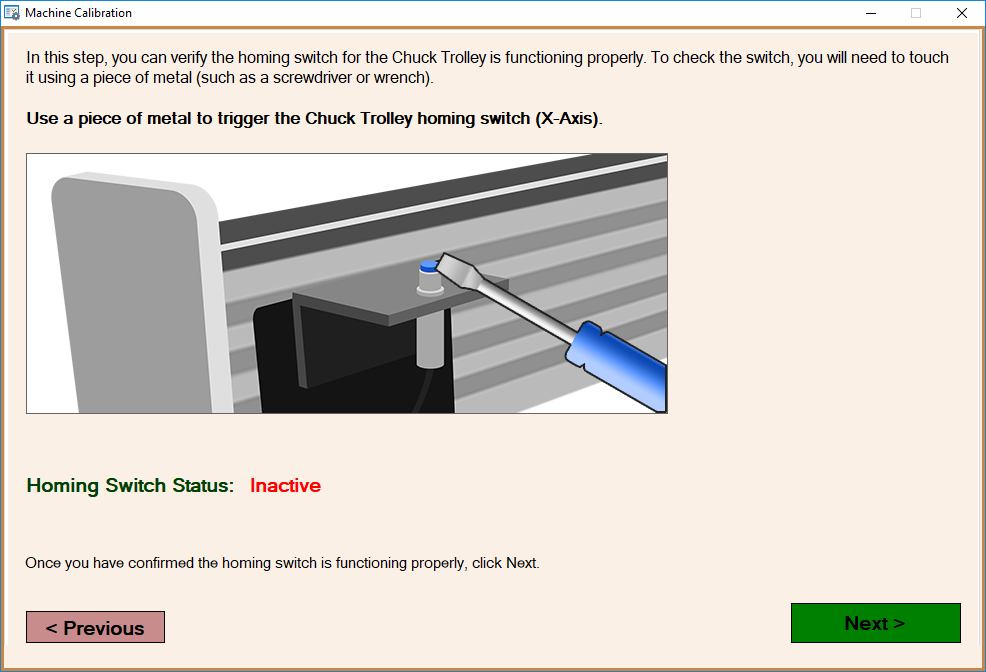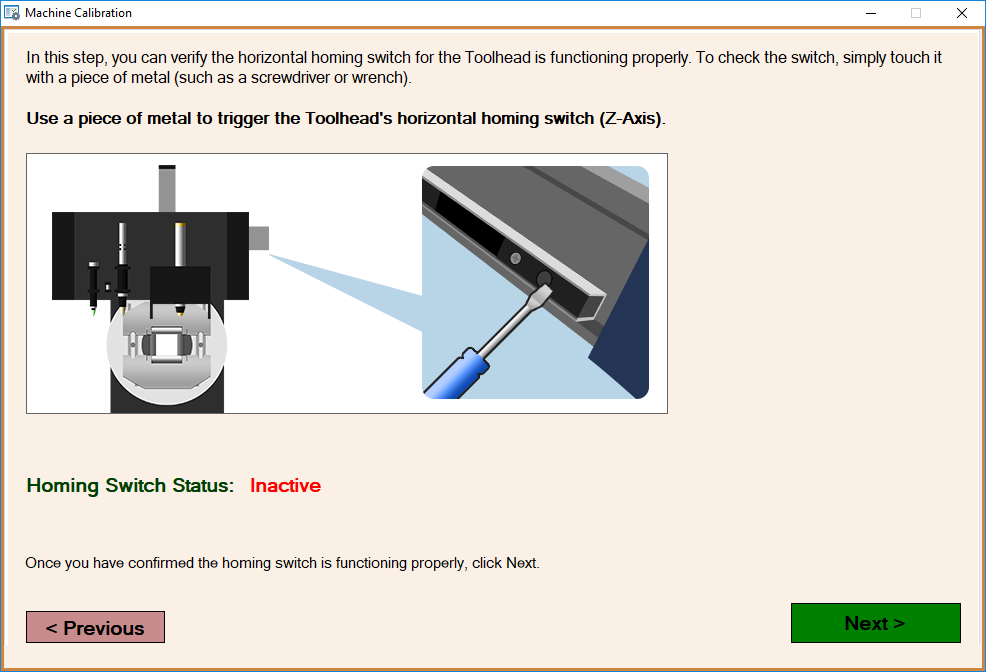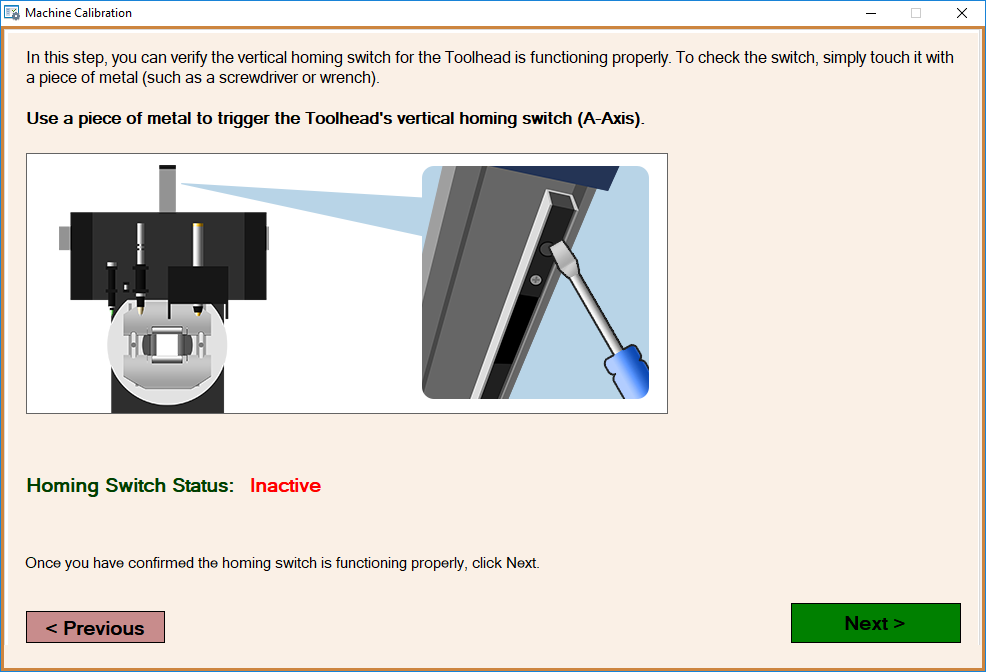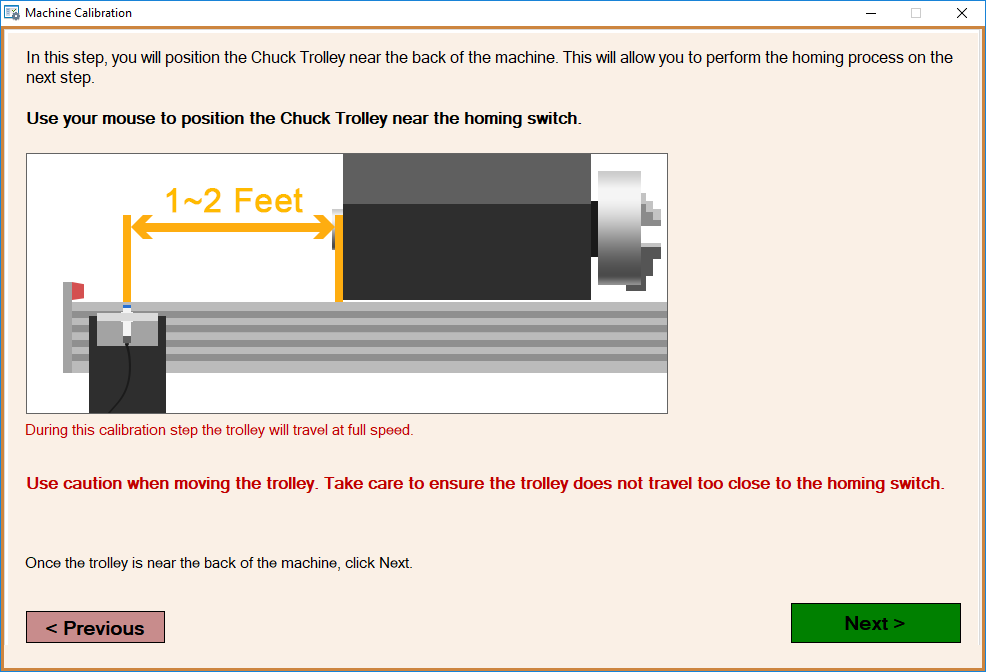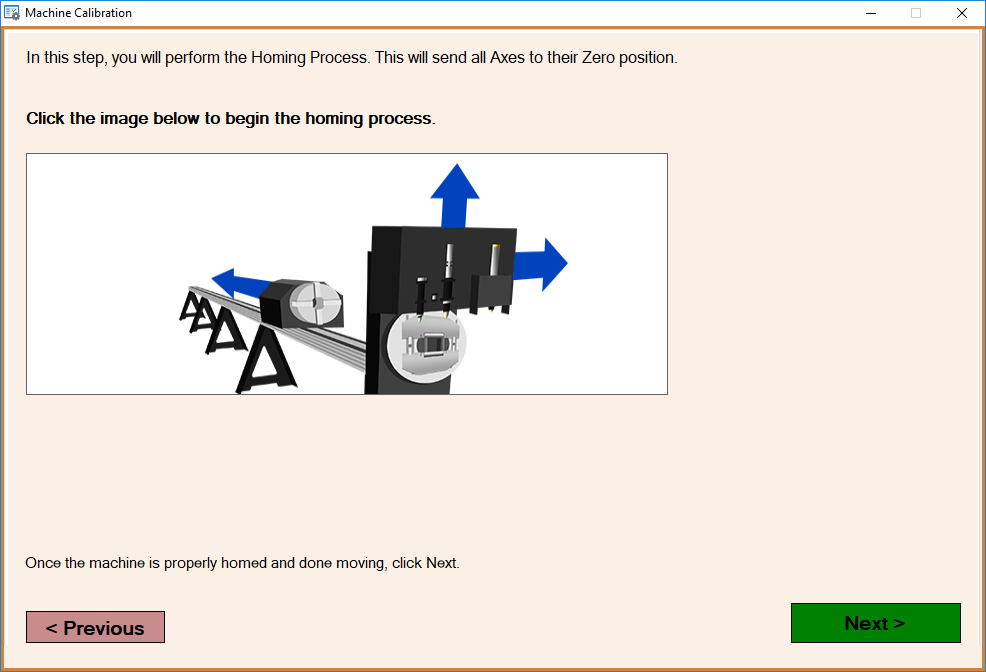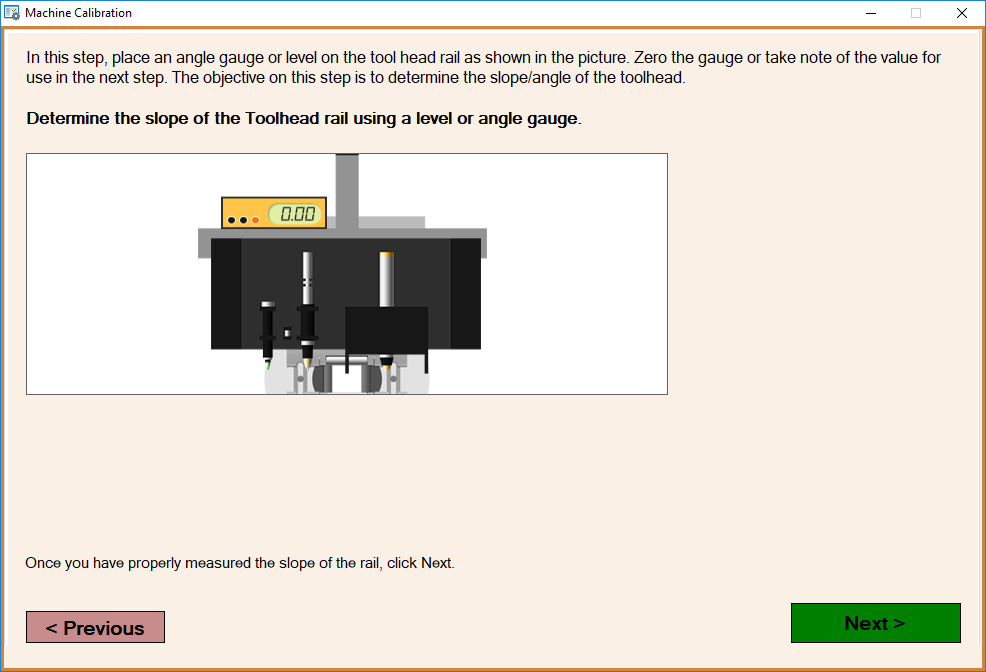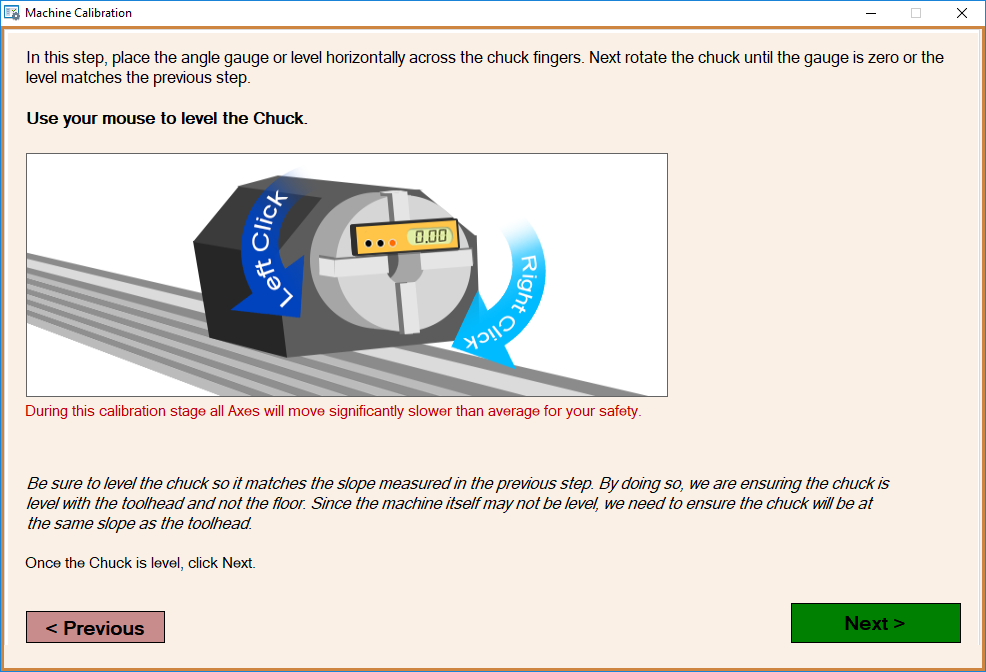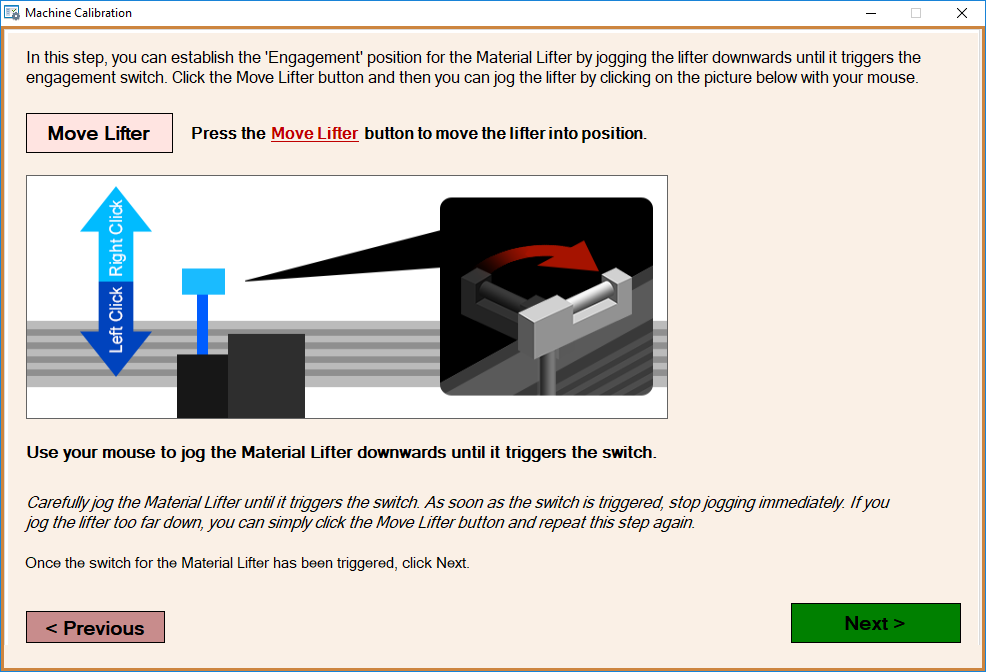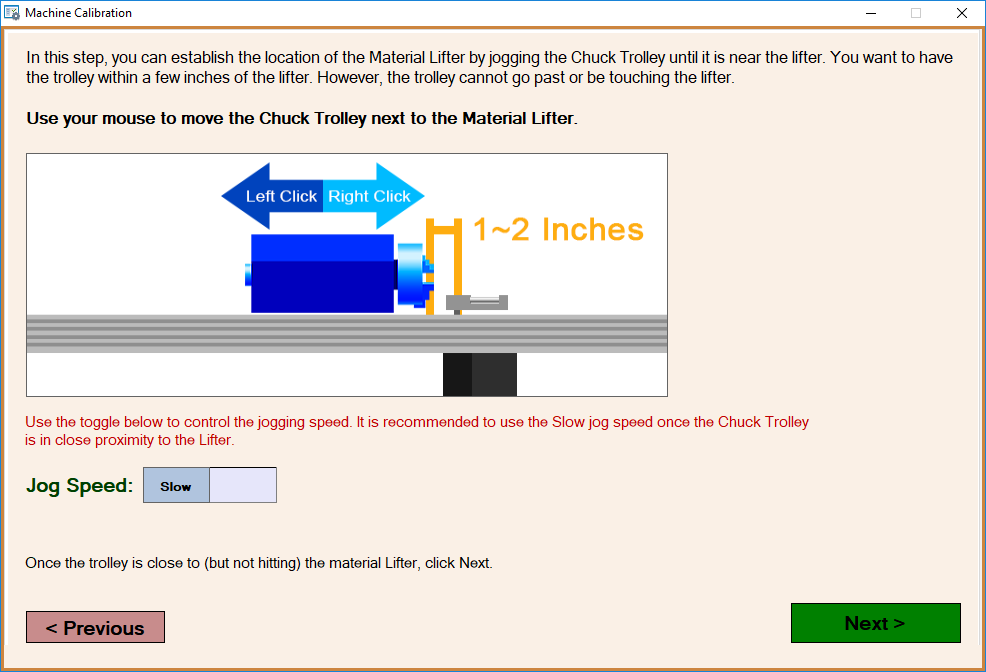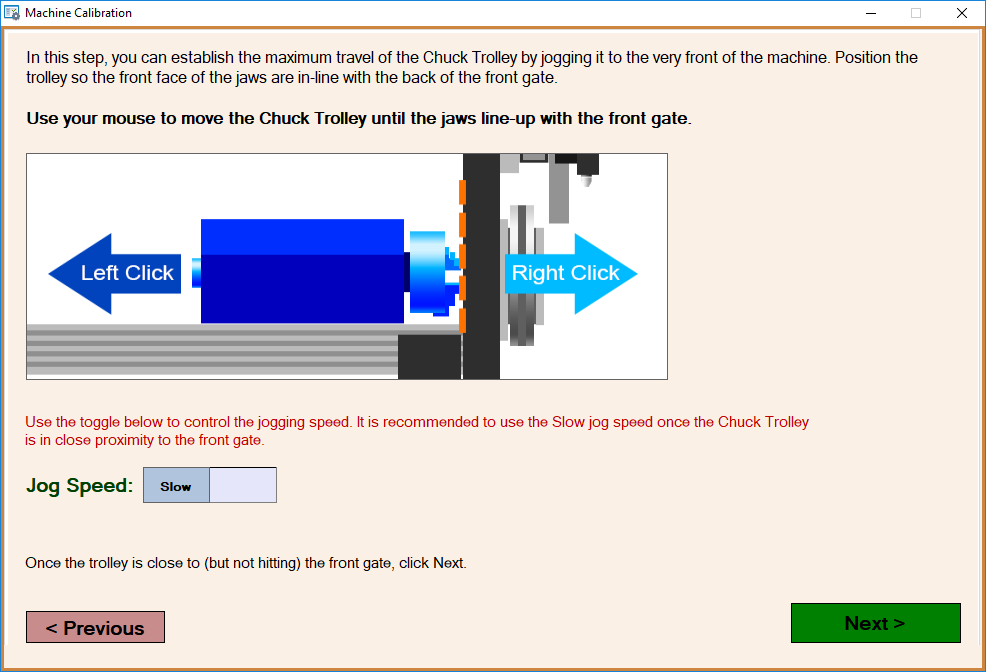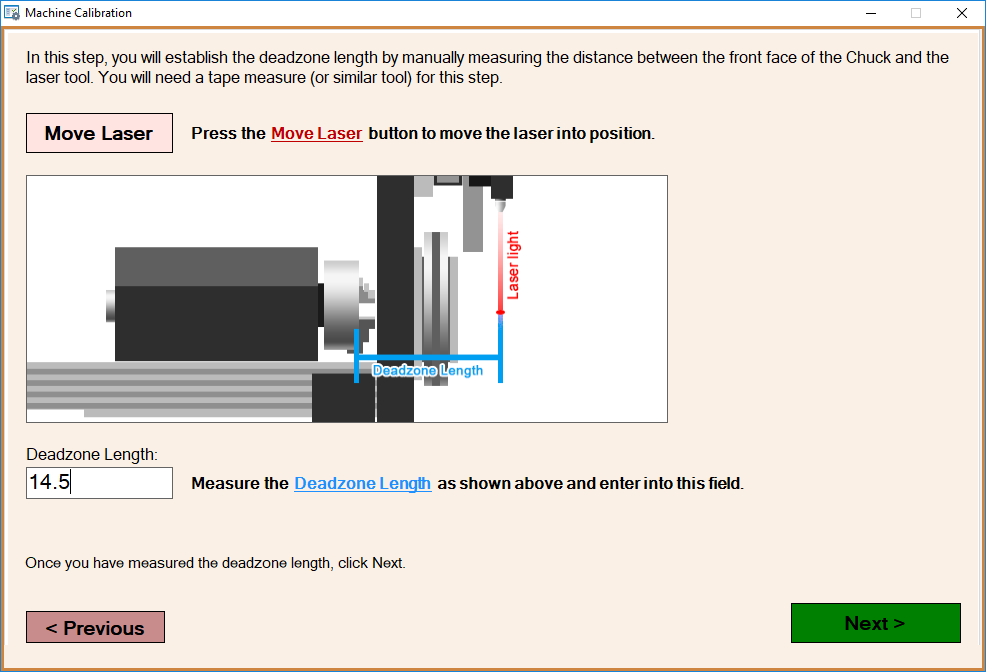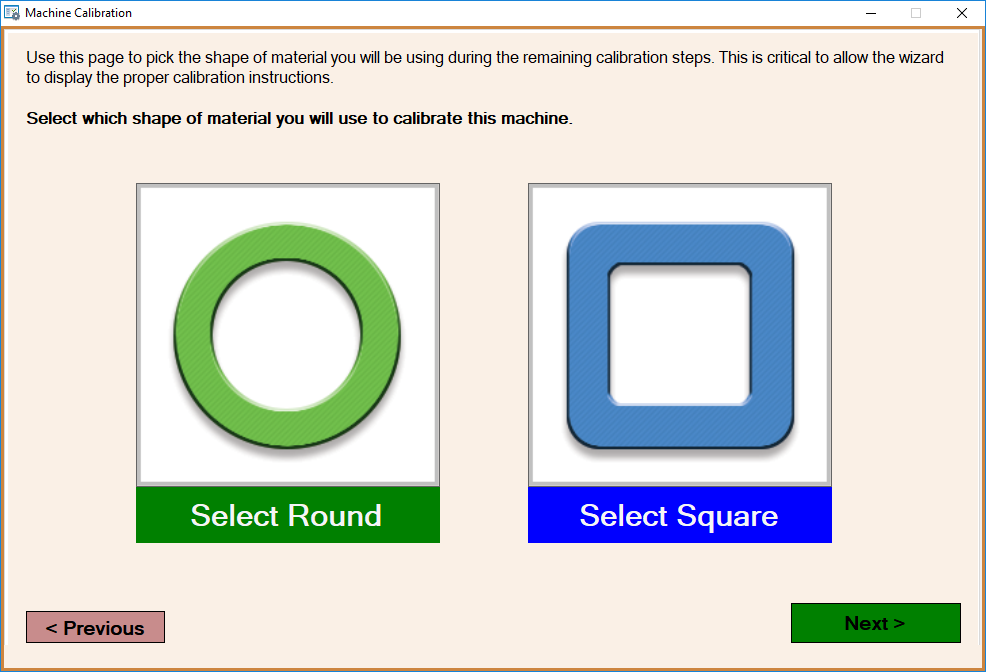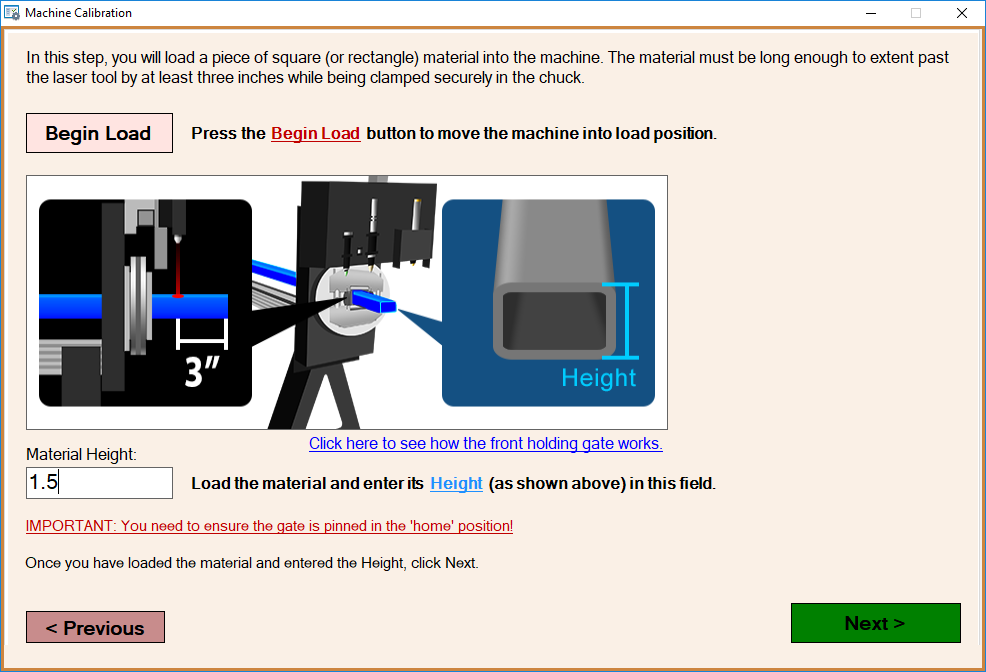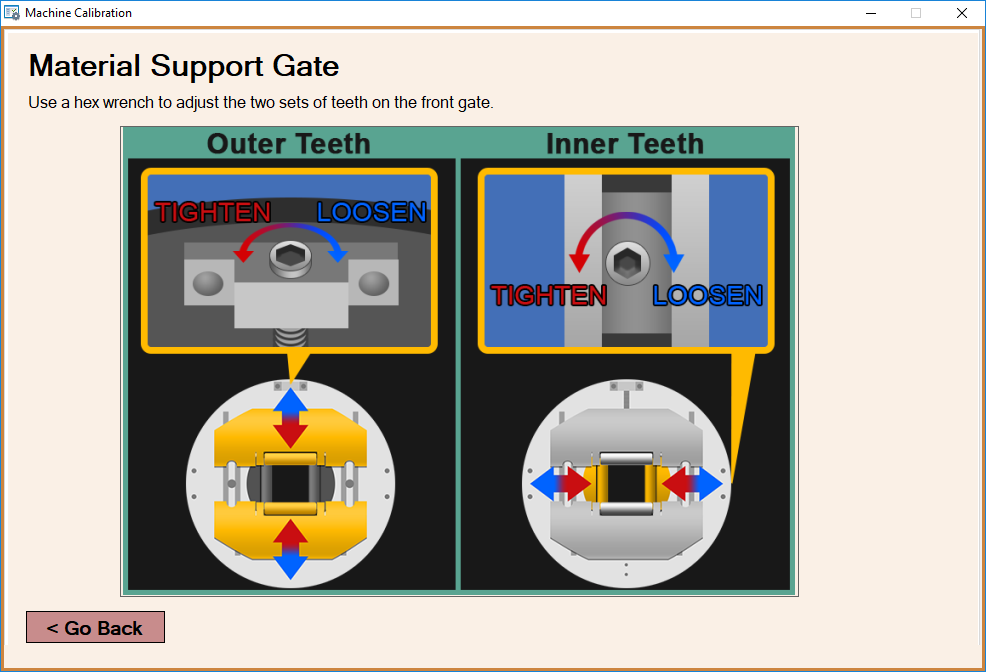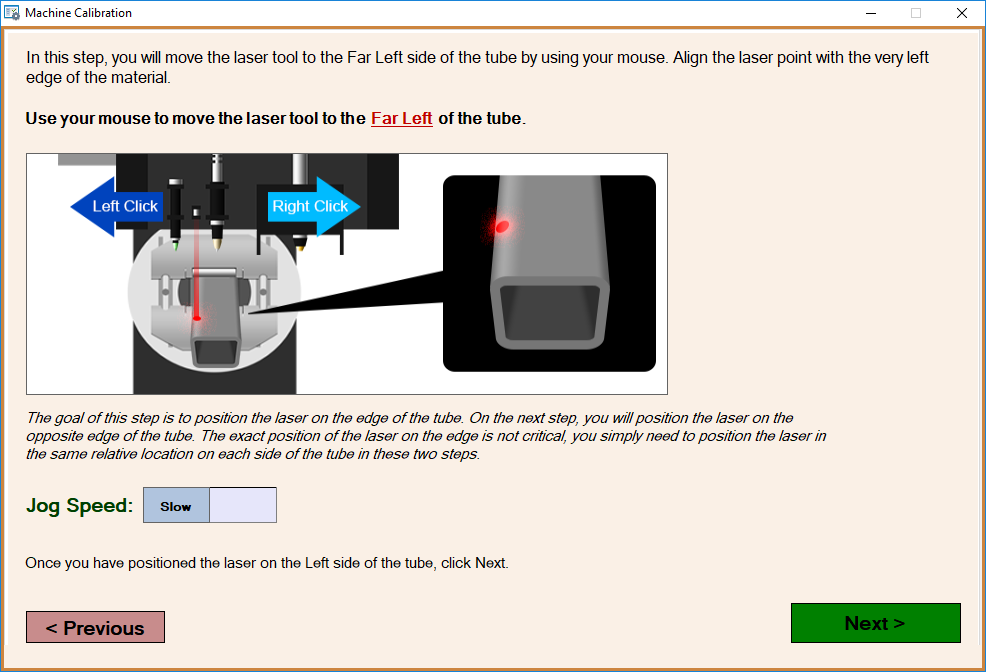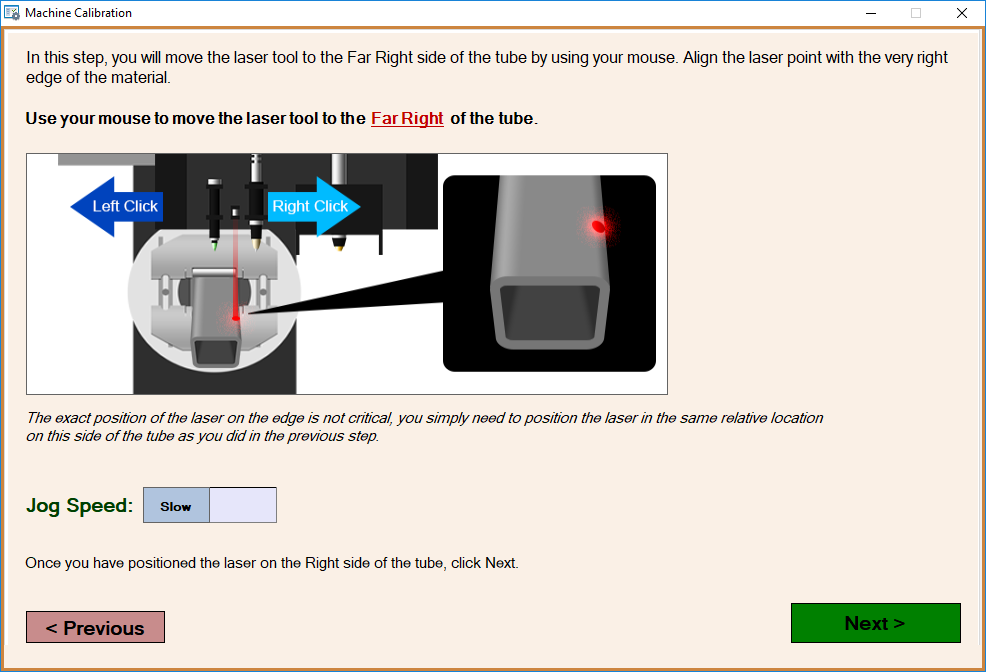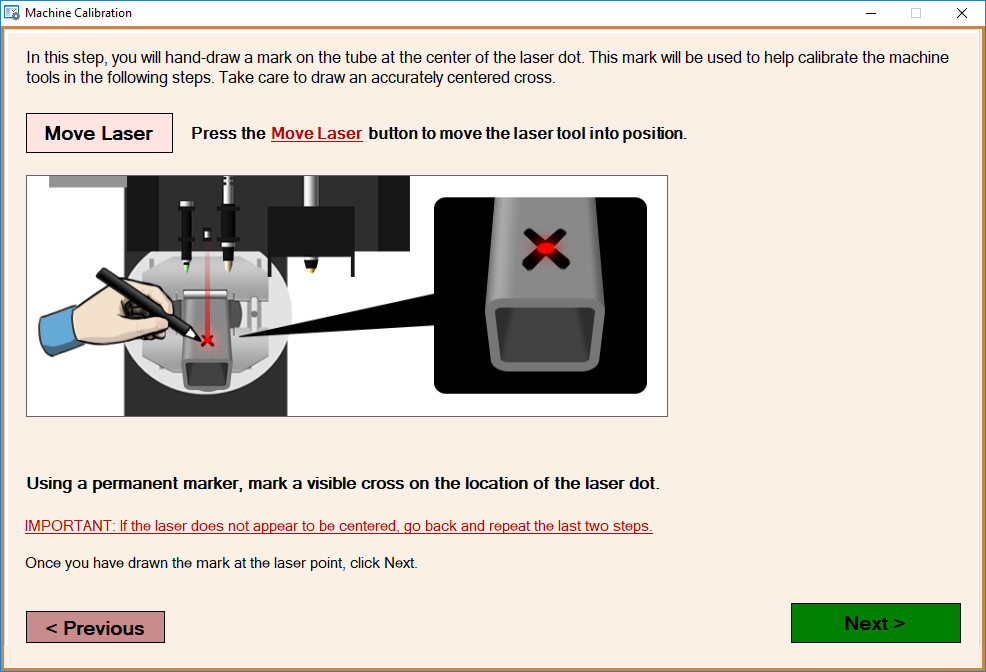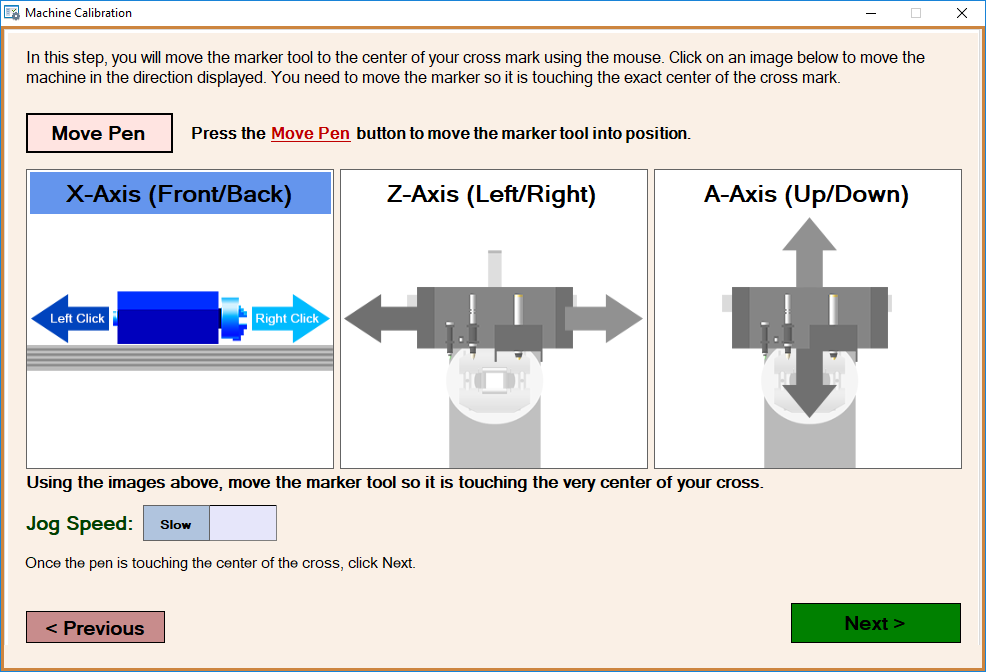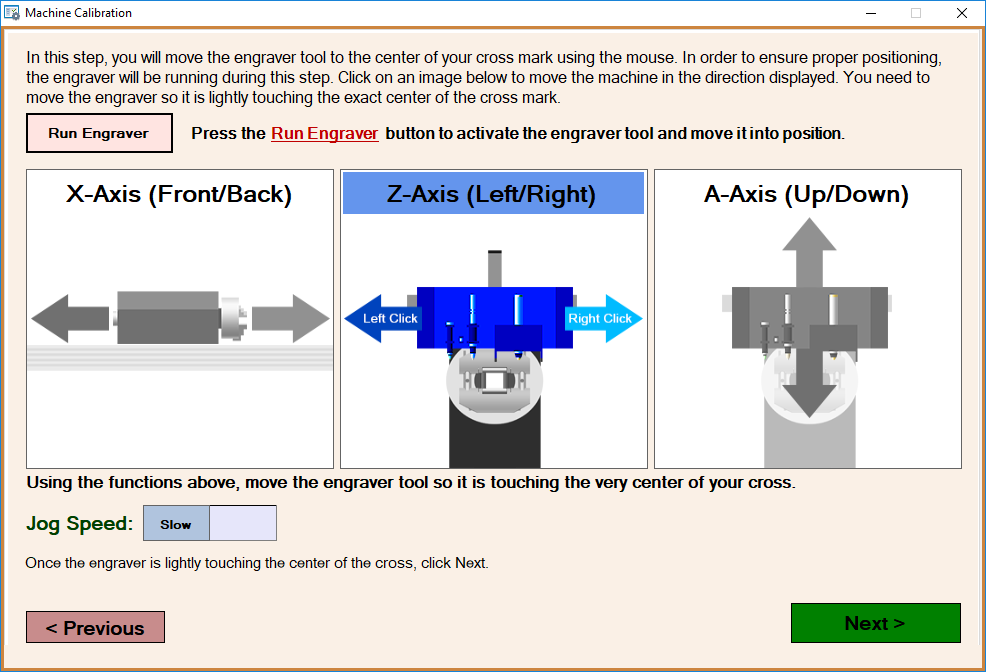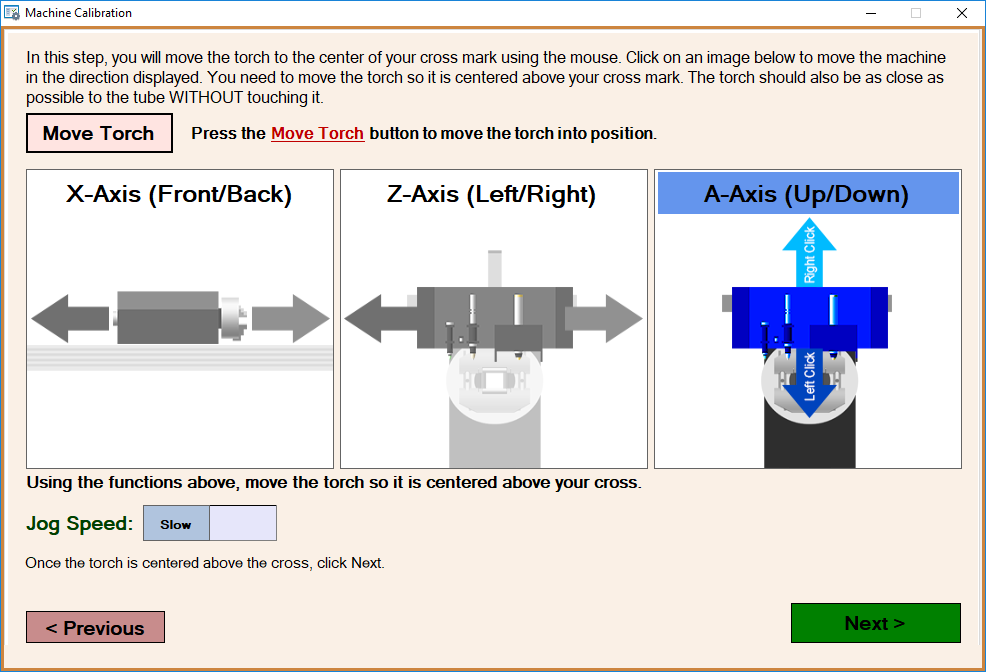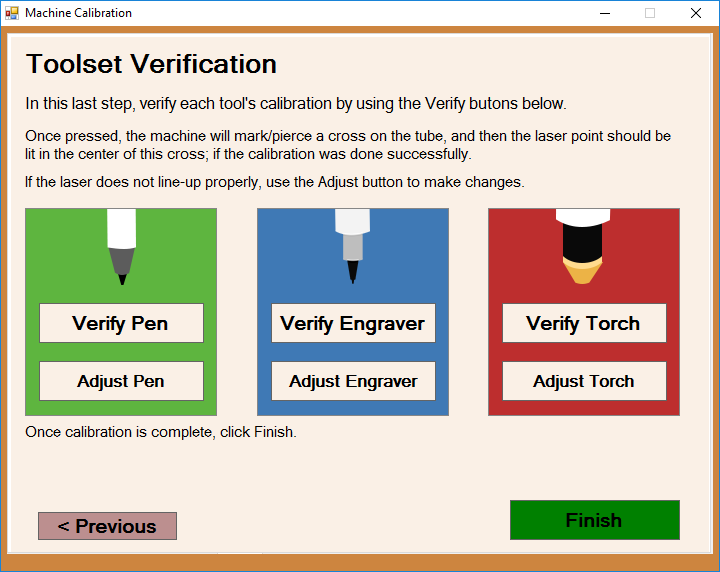Difference between revisions of "Dragon A400 Calibration"
| Line 1,129: | Line 1,129: | ||
*This page will prompt you to use the '''left''' and '''right''' buttons on your mouse to move the marker up, down, left and right, and feed the tubing forward or backward until it lines up with the mark you've created on the center of the tubing. Then, press the next button to register the information with the software. | *This page will prompt you to use the '''left''' and '''right''' buttons on your mouse to move the marker up, down, left and right, and feed the tubing forward or backward until it lines up with the mark you've created on the center of the tubing. Then, press the next button to register the information with the software. | ||
| − | |||
| − | |||
| − | |||
| − | |||
| − | |||
| − | |||
Revision as of 08:24, 2 November 2017
"This guide will help you understand all of the processes and procedures involved in calibrating your Dragon A400 machine."
"Please take your time in calibrating your new Dragon Machine/Software by following all of these steps thoroughly. This should take anywhere from 45 minutes to 2 hours based on how you pay attention to detail, how much help you have and if you are technologically adept or not."
"IMPORTANT: YOUR DRAGON A400 MACHINE HAS BEEN CALIBRATED AT OUR SHOP LOCATION. IF YOU HAVE NOT RECEIVED A BACKUP FILE, CONTACT YOUR BEND-TECH SUPPORT REPRESENTATIVE IMMEDIATELY TO DO SO."
"IN THE EVENT THAT YOU HAVE OBTAINED AND INSTALLED YOUR BACKUP FILE, YOU WILL ONLY NEED TO CALIBRATE YOUR TORCH POSITION IN THE WIZARD."
Contents
- 1 Machine Library/Machine Setup
- 2 Dragon Calibration Wizard
- 3 Introduction
- 4 Select Computer Setup
- 5 Chuck Travel (X Axis)
- 6 Chuck Rotation (Y Axis)
- 7 Toolset Horizontal Control (Z Axis)
- 8 Toolset Vertical Control (A Axis)
- 9 Lifter Station Control (B Axis)
- 10 Check Homing Switch (X Axis)
- 11 Check Homing Switch (Z Axis)
- 12 Check Homing Switch (A Axis)
- 13 Rapid Travel
- 14 Homing the Machine
- 15 Lifter Station Switch
- 16 Lifter Station Location
- 17 Maximum Chuck Travel (X Axis)
- 18 Dead Zone Length
- 19 Select Material Type
- 20 Loading Material
- 21 Front Holding Gate Operation
- 22 Laser Calibration - Step 1
- 23 Laser Calibration - Step 2
- 24 Laser Calibration - Step 3
- 25 Pen Calibration - Step 1
- 26 Engraver Calibration - Step 1
- 27 Torch Calibration - Step 1
- 28 Toolset Verification
Machine Library/Machine Setup
- After opening the Bend-Tech CAM software, choose either one of these steps to enter the machine calibration page.
1. Click directly on the Machine Library ![]() icon from the right hand side of the Task Menu screen and select the Wizard
icon from the right hand side of the Task Menu screen and select the Wizard 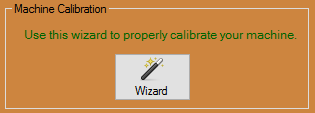 button.
button.
2. Click on the Tools button from the Main Menu Bar, then the Machine Library ![]() icon and select the Wizard
icon and select the Wizard  button.
button.
3. Click on the Tools button from the Main Menu Bar, then the Machine Setup button.
Dragon Calibration Wizard
This initial startup screen for the Calibration Wizard will allow you to choose from multiple options for calibrating different aspects of your machine, or complete an overall calibration from the beginning.
Introduction
- This introduction gives you a small insight into the tasks that are expected during this calibration and instructs you to turn on the power on the Dragon machine.
- When the machine is turned on, click the "Start Mach" button to continue to the next page.
Select Computer Setup
- The "Select Computer Setup" page will open your Mach program and it will ask you which side of the Dragon machine your computer is located on.
- Select the image that describes your computer's location in reference to the Dragon machine to move on to the next page in the calibration.
Chuck Travel (X Axis)
- This page will prompt you to adjust the chuck travel to ensure that it is moving in the proper direction when you press the left and right buttons on your mouse.
Chuck Rotation (Y Axis)
- This page will prompt you to adjust the chuck rotation to ensure that it is rotating in the proper direction when you press the left and right buttons on your mouse.
Toolset Horizontal Control (Z Axis)
- This page will prompt you to move the tool head horizontally to ensure that the toolset is moving in the proper direction when you press the left and right buttons on your mouse.
Toolset Vertical Control (A Axis)
- This page will prompt you to adjust the toolset's vertical movement to ensure that it is moving in the proper direction when you press the left and right buttons on your mouse.
Lifter Station Control (B Axis)
- This page will prompt you to move the lifter station and ensure that it is moving in the proper direction when you press the left and right buttons on your mouse.
Check Homing Switch (X Axis)
- The page will prompt you to place a piece of metal to the manual switch for the X axis at the rear of the machine rail. You are prompted to activate this X axis switch until the screen indicator changes from Inactive to Active before clicking the Next button.
Check Homing Switch (Z Axis)
- The page will prompt you to place a piece of metal to the manual switch for the Z axis at the head of the machine on the horizontal axis. You are prompted to activate this Z axis switch until the screen indicator changes from Inactive to Active before clicking the Next button.
Check Homing Switch (A Axis)
- The page will prompt you to place a piece of metal to the manual switch for the A axis at the head of the machine on the vertical axis. You are prompted to activate this A axis switch until the screen indicator changes from Inactive to Active before clicking the Next button.
Rapid Travel
- This page will prompt you to move the chuck near the back of the machine using the left and right buttons on your mouse followed the Next button.
Homing the Machine
- This page will prompt you to click anywhere in the picture in order to send the machine to its home position.
- Then, click the next button.
Zero Chuck Rotation (Y Axis) - Step 1
- This page will prompt you to place an angle gauge or level onto the tool head rail located directly behind the tool changer. Then, zero out the angle gauge or read the bubble location on your level and note the value for use in the next step.
- Then, click the next button.
Zero Chuck Rotation (Y Axis) - Step 2
- This page will prompt you to place your angle gauge or level and place it on the fingers of the chuck. Then, rotate the chuck using the left and right click buttons on your mouse until the angle gauge or level reads as it did on the rail from the previous step.
- Then, click the next button.
Lifter Station Switch
- This page will prompt you to click on the Move Lifter button, then slowly jog the lifter head down until it triggers the switch and moves out of the way.
- Then, click the next button.
Lifter Station Location
- This page will prompt you to click on the picture in the screen to move your chuck trolley 1-2 inches from the lifter head.
- Then, click the next button.
Maximum Chuck Travel (X Axis)
- This page will prompt you to click in the picture on the screen in order to position the chuck near the front gate. Then, back the chuck off so that the jaws of the chuck are lined up with the rear face of the front gate.
- Then, click the next button.
Dead Zone Length
- This page will prompt you to measure the length from the base of the chuck to the laser light when the chuck is in its front most position.
- Enter the measured length in the Deadzone Length value field and select the next button when you're finished.
Select Material Type
- This page will prompt you to select the material type that will be used for calibrating your tools on the toolhead. This can be either round, square or rectangular material.
- Then, click the next button.
Loading Material
- This page will prompt you to click the Begin Load button, load your material with 3 inches or so sticking out past the laser and input the height or OD of your material in the Material Height value field provided.
- Then, click the next button.
Front Holding Gate Operation
- Click the wording that reads Click here to see how the front holding gate works and a window will appear showing you how to adjust the front gate to accommodate your tubing OD.
Laser Calibration - Step 1
- This page will prompt you to use the left and right buttons on your mouse to move the laser left and right until it touches the left most edge of the tubing.
- Next, press the next button to register the information with the software and continue.
Laser Calibration - Step 2
- This page will prompt you to use the left and right buttons on your mouse to move the laser left and right until it touches the right most edge of the tubing.
- Next, press the next button to register the information with the software and continue.
Laser Calibration - Step 3
- This page automatically use the information from the two previous steps and attempt to find the center of the tubing.
- If the location of the laser is not completely centered on the tube, repeat the previous steps to ensure an accurate calibration, then mark the absolute center with a marker.
- Then, click the next button to continue.
Pen Calibration - Step 1
- This page will prompt you to use the left and right buttons on your mouse to move the marker up, down, left and right, and feed the tubing forward or backward until it lines up with the mark you've created on the center of the tubing. Then, press the next button to register the information with the software.
Engraver Calibration - Step 1
- This page will prompt you to first initiate the engraver using the Start Engraver button, then use the left and right buttons on your mouse to move the engraver up, down, left and right, and feed the tubing forward or backward until it lies directly on the mark you've created on the center of the tubing. Then, press the next button to register the information with the software.
Torch Calibration - Step 1
- This page will prompt you to use the left and right buttons on your mouse to move the torch up, down, left and right, and feed the tubing forward or backward until it lies directly on the mark you've created on the center of the tubing. Then, press the next button to register the information with the software.
Toolset Verification
- This last window will prompt you to move each of the tools on the toolset to validate their position and see if you need to make adjustments to any of them.
- When you're sure that the tools have all been calibrated correctly, click the finish button to lock in the information and close the calibration wizard.
